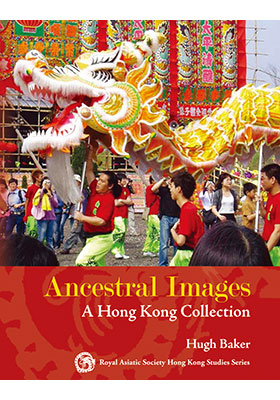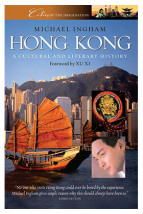Ancestral Images
A Hong Kong Collection
(香港風俗談)
ISBN : 978-988-8083-09-1
Royal Asiatic Society Hong Kong Studies Series (皇家亞洲學會香港研究叢書)
July 2011
404 pages, 7″ x 9″, 124 color illus.
- HK$350.00
Ebooks
Also Available on
This new revised edition collects in one place the articles from the three volumes of Hugh Baker’s Ancestral Images originally published in 1979, 1980 and 1981. The 120 articles and photographs explore everyday life, customs and rituals in Hong Kong’s rural New Territories. They investigate religion, food, language, history, festivals, family, strange happenings and clan warfare. The book documents much that can no longer be found. But it also provides an understanding of a world which has not yet entirely disappeared, and which still forms the background of life in modern urban Hong Kong and its neighbouring cities. Esoteric nuggets of information are scattered through the book: How do you ascend a pagoda with no staircase? How can you marry without attending the wedding? When is it wrong to buy a book?
Hugh Baker answers these and many other questions in this well-rounded picture of a vibrant, quirky people painted with affection and informed by many years of scholarship and research.
“Professor Baker makes it possible to recognise what still remains of the architecture, agriculture and traditional dress of this historic area and also to understand something of the unique way of life followed here for a thousand years that is now steadily giving way to urbanisation and uniformity.” —From the Foreword by Lady Youde
“[F]ar and away the best and most enlightening introduction to the customs and history of the New Territories” —James Hayes, author of The Great Difference: Hong Kong’s New Territories and Its People 1898–2004, in the Journal of the Hong Kong Branch of the Royal Asiatic Society
“Hugh Baker’s three volumes of Ancestral Images are classics. There is nothing comparable now or when the volumes were first published.” —James L. Watson, Fairbank Professor of Chinese Society and Professor of Anthropology, Harvard University
“The text is lively and self-deprecating, and although journalistic in tone, it is informed by both first-hand experience and fluency with relevant secondary scholarship of the time . . . . It serves as an enjoyable and idiosyncratic collection of snapshots of Hong Kong life in the 1960s and 1970s.” —Brian J. Nichols, Religious Studies Review





